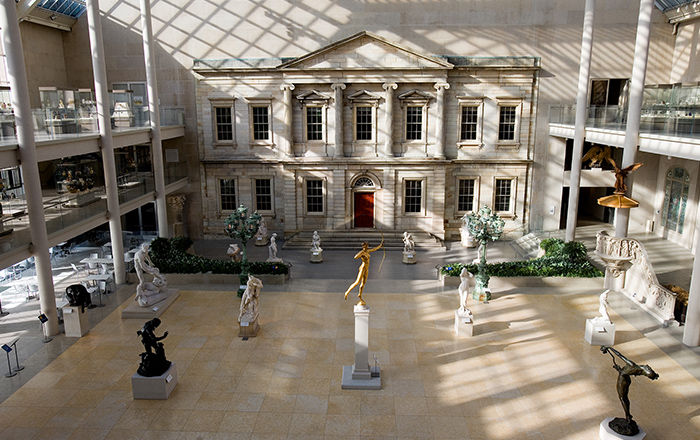Returned to lender The Met accepts temporary loans of art both for short-term exhibitions and for long-term display in its galleries.
Morning Gown (Rock)
Not on view
In 1641 the Dutch received a highly profitable privilege: they became the only European power permitted by the shogunate to trade with Japan. This fashionable morning gown, with a pattern featuring auspicious drawstring money bags, was made in Japan especially for Dutch traders who acquired such garments as gifts for high-level Dutch East India Company executives. Wider than typical Japanese silks, the fabric may have been a Chinese import. In construction, rocken resemble Japanese kimonos, as both lack shoulder seams and have two long pieces of cloth extended unbroken over the shoulders, comprising the right and the left sides. The sleeves, however, are attached to the robe in a manner more typical of Western dress.
Due to rights restrictions, this image cannot be enlarged, viewed at full screen, or downloaded.

